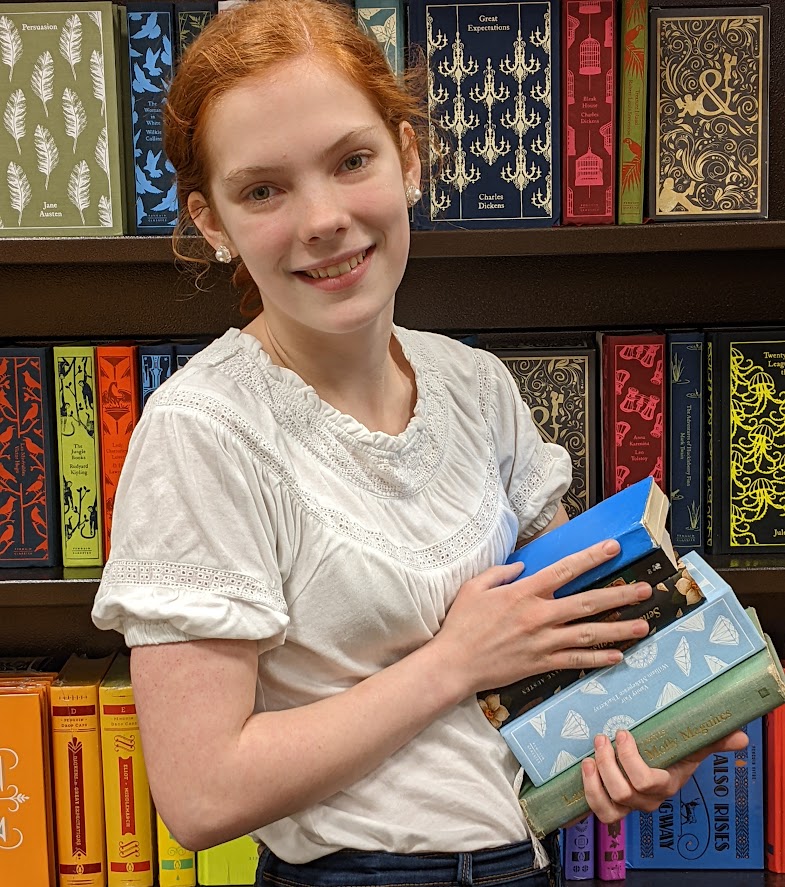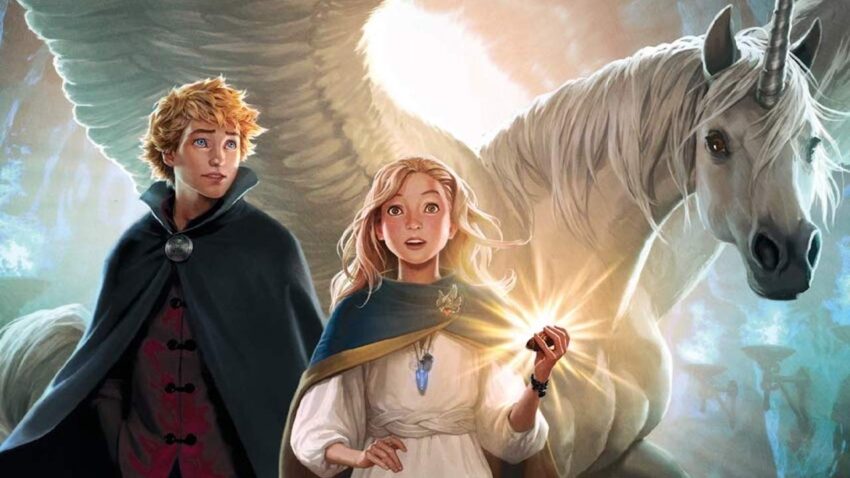We’ve all had an epiphany. That moment when you realize what you’ve been missing this entire time, and begin to set out to fix it. Those moments can be some of the most powerful, emotional moments of our entire lives.
And that is what makes them so important in stories.
The epiphany is the moment when your character discovers the answer to the question that your theme has been asking. The epiphany is the moment when your protagonist finally discovers their flaw, and they begin to work toward eradicating it all together. The epiphany strikes just after your character’s darkest moment — the space in time when their greatest fears are realized and they are left broken and supposedly alone. In that moment of the blackest darkness, your character finds a lightbulb. And it’s because of that light that they are able to stand and face the oncoming climax without hesitation. Because that light is stronger than the evil that surrounds them, they are able to gather the courage to charge into a battle that they very well know they might lose.
But the battle isn’t the point any more. They’ve defeated their inner conflict, which is so much more important. The climax is simply their statement to the world that they are victorious — whether the climax ends in disaster or triumph.
The epiphany has been called the most important part of any story.
So what happens when you miss it?
The first book of Keeper of the Lost Cities.
Keeper of the Lost Cities
Despite writing fantasy, I don’t find myself reading much of it. I’m much more at home in classic literature, and since these two genres rarely line up, I find that I don’t actually read very much of it, although my writer’s brain consistently strays into that genre. I usually prefer The Chronicles of Narnia or The Lord of the Rings. However, I am always on the lookout for recommended modern fantasy, and since multiple friends told me that I had to read the Keeper of the Lost Cities series, I thought I’d give it a try.
After only the first book, I was done.
The main character doesn’t go through any development, I couldn’t for the life of me figure out the theme, and the only thing that seemed to connect the shattered episodes that make up the plot was that each was exciting and dangerous and usually ended up with Sophie Foster, the protagonist, either passed out in the hospital or facing a court hearing for breaking elven laws.
Usually it was both.
Not to mention, there was too much inconsistent personal drama that seemed to serve only to keep a reader’s attention long enough to make it to the next catastrophe, new revelation, or heart-jerking emotional issue. For example, toward the three-quarters point in the book, Sophie accidentally discovers that her adopted parents are planning to terminate the adoption process and let someone else care for her. But although her parents leave the sudden termination mainly unexplained, they later decide to readopt Sophie after she endures a traumatic kidnapping and nearly dies from that experience. The unadopt/readopt sequence was only a filler before the author could write an action-packed climax full of kidnappings, torture, and a desperate escape.
I assumed that the author hadn’t even tried to incorporate a thematic question, character development, or meaningful internal conflict into the story.
But then, after revisiting the book several months later, I realized that many aspects of a good novel were actually there. I could find many of the points from the three-act story structure. The un-adoption event was meant to be the “dark moment” plot point. By the final page Sophie has even changed some, despite the lack of a flaw. When she recovers from the torture she experienced throughout her kidnapping and the elven council calls her for yet another hearing, she faces them with more boldness than she ever has before. Being through a kidnapping has certainly dampened the emotional effect that the possibility of being exiled from all elven civilization would have had on her otherwise, but such an effect is called character change, rather than development. I even did some digging and discovered that the author had incorporated a theme of finding belonging.
But then my question was what, aside from the randomized, action-driven events and Mary Sue protagonist, had obscured the theme?
The answer is that the author failed to include an epiphany for her character.
The Importance of An Epiphany
To be fair, it is very difficult to write an epiphany for a flawless character. Yet it has been done. An example would be Rapunzel from Tangled, who wants to find love and realizes that Eugene can give it while her mother never can. And on top of this, not all series necessarily need an epiphany in their very first book. If Sophie retained internal conflict throughout the climax and the rest of the series, then she wouldn’t need an epiphany until the very end. The author could instead intensify the conflict until the very end of the last book, when everything would climax in one moment.
But this is something that cannot be done with a flawless character. No Mary Sue is going to have enough (or any) internal conflict to last throughout an entire nine-book series, and if the author intends to include a theme and character development in the first book, then an epiphany is absolutely necessary. Otherwise the readers will be lost on the theme and bored by the flawless, conflict-less protagonist.
It seems like Shannon Messenger meant to write such an epiphany for flawless Sophie Foster. She set up a fear for Sophie (not having a family) and a desire (to find belonging), and then brought that fear to reality right before the climax, when Sophie’s family inexplicably disowns her and she is literally left alone in the dark, with no friends. At this point, readers wait as the character works through what has brought them to this point, which is (hopefully) their flaw, and in other cases an insane, action-packed plot over which they have no control.
In either case, the character should, at this moment, find the lightbulb and turn it on. We wait as Sophie sobs alone in a cave, thinking that yet another friend has deserted her. But she never finds her lightbulb.
Instead she is unceremoniously kidnapped and swept away to the climax, where she faces an unknown force and endures a series of events over which she, once again, has no control. She is completely drained and seems to have no reason nor energy to escape. Her family completely disowned her, so there is no logical reason for her to feel as though she belongs there. She takes her anger out on her confused friends, who then avoid her. Of course she’s lonely and depressed. She has no flaw to root out and no misbelief to overcome. She just has to roll with the punches and hope that the author lets up eventually. She is eventually rescued, but the entire climax lacks the triumphant luster of most victorious fantasy climaxes because she doesn’t own the victory. She isn’t facing the climax, she’s being dragged through it. She isn’t a fearless and brave protagonist because she has nothing to live for. She doesn’t have a purpose now that she’s been abandoned. But instead of discovering a purpose and living for it with all of her heart, she’s being forced through yet another series of catastrophic, emotional events.
Imagine how problematic this would be if the writers of a classic story completely skipped their protagonist’s epiphany. Imagine if George Bailey (from It’s a Wonderful Life) went home without realizing what the real measure of success is? He would have changed some, of course. He might still hug his family and see his problems with the antagonist as insignificant compared to what he has just endured. But the audience would be left wondering if George’s life is really permanently affected by the events of the movie, or if he is only momentarily changing as a result of the catastrophic series of events he just witnessed. When we don’t understand how a character has arrived at a conclusion, we begin to doubt that they actually reached that conclusion at all.
Sophie’s Lack of Epiphany
Sophie is kidnapped, rescued, and welcomed back into the family who previously disowned her. Sophie is finally at rest knowing that she belongs.
But I completely missed this theme of belonging the first time around because she never made this realization. Indeed, there seems to be little for her to realize. Sophie’s only realization seems to be that her found family actually does love her, but that only comes up after the climax. In fact, having this realization before the climax would be illogical, since her parents, friends, and family definitely seem to have “abandoned” her. Therefore, it can’t be considered an epiphany.
And further, I began to doubt that Sophie’s emotional composure is actually permanent. Although she ends the first book with more boldness, the author gives no indication that it will last. It seems more likely that after the stress of the recent kidnapping and torture has worn off, Sophie will go right back to her usual, self-concious, nervous self — desperate for attention and love while constantly feeling as though she “doesn’t fit in,” despite having a loving family and circle of likable friends.
Personally, I find a lot of potential here. In that darkened cave, thinking she had hit rock bottom when one of the most traumatic events in her life was just seconds away, I think that Sophie could have had a lightbulb moment. I think that she could have realized that she was going to love those around her, even if they didn’t seem to love her back. Instead of locking herself in her room and refusing to speak to her found family, she would tell the parents who disowned her that she loved them, even if they were willing to turn her out of the only place she felt at home. She would determine to apologize to the friends she had hurt and promise to treat everyone with the love and respect that she wished she had received. I would have played up her thirst for affection as her main flaw, her desperate sense for acceptance as her biggest weakness. Then I would have broken her and healed her as a stronger Sophie — a Sophie who doesn’t spend months with a happy family and likable friends wishing that she “fit in” better, a Sophie who would grant everyone the benefit of the doubt and love — even those who mistreat her. Most of all, she would be a Sophie who could face the oncoming kidnapping with a bravery and courage that is uncharacteristic of the quiet, nervous, self-conscious girl we had followed for nearly five hundred pages. She would not only be more talented than her kidnappers, but also wiser, because she would have grown and changed. She would be the post-epiphany Sophie. She would be memorable, scarred, yet still strong.



What do you think about Keeper of the Lost Cities? Did you catch the theme the first time around? And how was the article? Too sweet? Too sour? Just right? Comment below and let us know!


Hi! My name is Mara, and I’m a Christian artist, violinist, and blogger. I remember the day that I decided that I would learn something new about what makes a good story from every book I picked up — whether it was good, bad, or a mixture of both. I use this blog as a way of sharing some of the tips and tricks I’ve learned, and highlight which books, cartoons, and movies have taught me the most about writing an awesome story.


I agreed with all of this! Well written and very true! I honestly had no idea what the theme of that book was… Thank you for the well-written article!
You’re welcome! I’m so glad you enjoyed it!
This was awesome! I’ve never read this book but still was inspired by this article! Totally agree all the way!!!
Thank you!
Wow, Mara. You really dug into that series. This was very informative. Thank you!
This makes so much sense! I have read through the whole Keeper of the Lost Cities series, and while I enjoyed the creativity, I felt like there was something was missing. This article answers my question!
Yay! Always happy to help. 🙂
Hello Mara. Good luck ever finding this comment!
Haha!
Joke’s on you, WordPress organizes comments by “most recent” on the admin side of things!
I SEE ALL.
*evil cackle*
I loved this article, and totally agree with it! And by the way, you aren’t missing much by not reading the rest of the series… the first is the best and then it’s just the same old cycle over and over again.
I figured, although I’m wondering if I should pick them up again for new article ideas. I know a lot of people are invested in the story and it would be cool to write specifically to that audience.
Thanks so much for commenting! 🙂